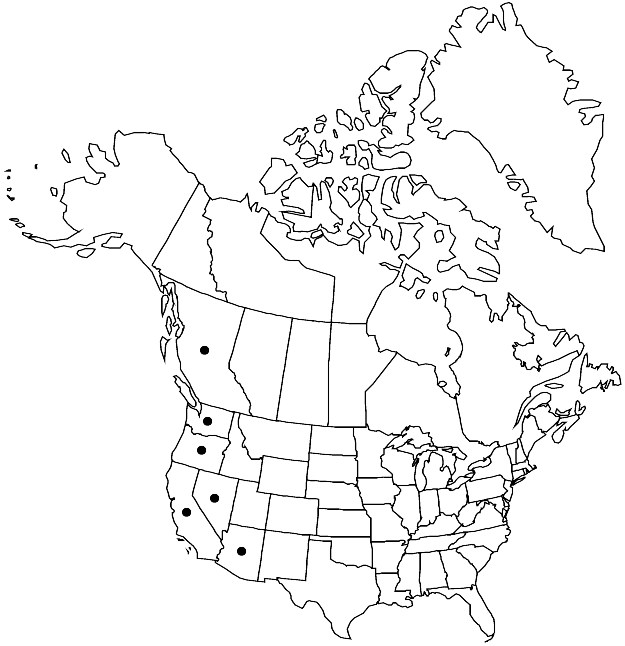Rosulabryum torquescens
Bryologist 99: 223. 1996.
Plants small to usually medium-sized, green or red-green. Stems 1.5–2 cm, distinctly singly rosulate, innovations short, rosulate. Leaves of main rosette and innovations similar; slightly twisted to contorted when dry, erect-spreading when moist, broadly ovate to obovate, flat, 1.5–3 mm; base not decurrent; margins recurved from mid leaf to near apex, distinctly and strongly serrate distally, limbidium strong, of 2–4 rows of cells; apex acute; costa short-excurrent to excurrent, awn stout or slender, irregularly twisted when dry; proximal laminal cells long-rectangular in rosette leaves; medial and distal cells long-rhomboidal, 12–20 µm wide, 3–5:1, walls firm, not porose. Specialized asexual reproduction by rhizoidal tubers, scarlet, crimson, or red, brighter than rhizoids, (100–)200–300 µm. Sexual condition dioicous or polyoicous. Capsule strongly nutant, red, elongate-pyriform, 3–6 mm.
Phenology: Capsules mature Apr–Jun.
Habitat: Soil, rock, rotting wood
Elevation: low to moderate elevations (0-1500 m)
Distribution

B.C., Ariz., Calif., Nev., Oreg., Wash., South America, Eurasia, Africa, Atlantic Islands (including Macaronesia), Pacific Islands (New Zealand), Australia.
Discussion
Rosulabryum torquescens is found on all continents except Antarctica, particularly in seasonal Mediterranean, warm-temperate to subtropical regions, in climates that are warmer and more seasonal than for R. capillare. This is a distinctive species, characterized by irregularly contorted leaves with a short to medium-length awn, strong limbidium, strongly serrate distal margins, mixed sexuality, bright red to crimson tubers, and strongly nutant (at maturity) red capsules. In the flora area, it is most common in Mediterranean climates along the coast, but extends inland in semiarid to arid regions of the North American Southwest.
Selected References
None.